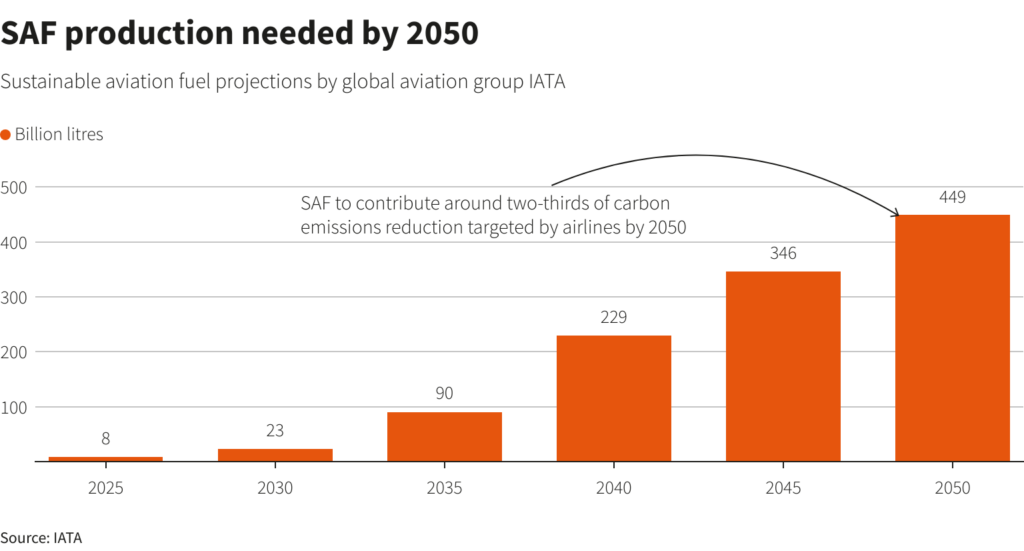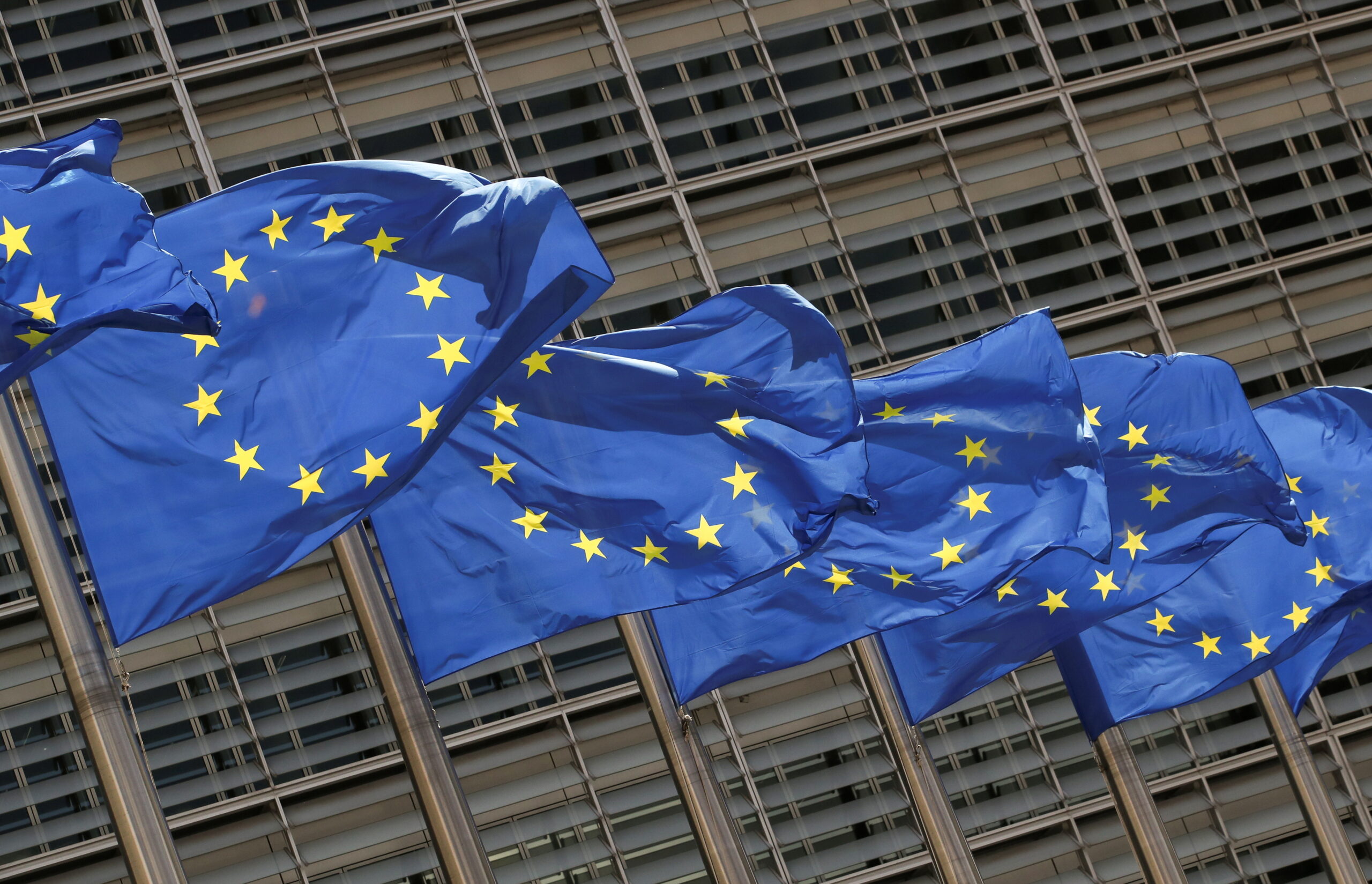The European Union is scouting Africa to back clean jet fuel projects under its Global Gateway infrastructure fund, an EU official said, ahead of an anticipated boom in demand for environmentally sustainable air travel.
The EU has pledged to dedicate half of its 300 billion euro ($324 billion) infrastructure plan, seen as a rival to China’s Belt and Road Initiative, to Africa.
The fund has already backed renewable plants, green hydrogen initiatives, vaccines and education projects in Africa, and the official said it was now looking into sustainable aviation fuel (SAF).
“In the context of the Global Gateway, the Commission is currently looking into possible co-financing mechanisms and guarantee instruments,” said Stefan De Keersmaecker, a European Commission spokesperson.
“SAF production in the African continent has great potential.”
SAFs are low-carbon fuel alternatives for the aviation industry and can be made from various crops among other feedstock sources.
The EU will launch a 4 million euro capacity-building project by Dec. 31 to support SAF feasibility studies and certification in 11 African countries and India.
Following feasibility studies, selected projects could draw funds from the Global Gateway, De Keersmaecker said.

SAF SCRAMBLE
The aviation industry contributes more than 2% of global energy-related emissions, and the EU is mandating emissions reduction targets that will require airlines to use more SAF.
That will help create annual global demand of 450 billion litres of SAF by 2050, according to the International Air Transport Association, and has made Africa’s vast swathes of under-utilised agricultural land increasingly attractive.
There is currently no SAF production on the continent. And establishing feedstock supply chains will be a challenge in Africa where poor infrastructure, limited refining capacity and inadequate regulations could delay projects and drive up costs, analysts said.
“The greatest way to reduce the cost of SAF in the African continent and to have SAF that is produced sustainably is through local manufacturing,” Allan Kilavuka, chief executive at Kenya Airways (KQNA.NR), said.
Companies including Italy’s Eni (ENI.MI), South Africa’s Sasol (SOLJ.J), Linde (LIN.DE) of Germany and Danish firm Topsoe are nonetheless forging ahead with African SAF and biofuel investments.
Frankline Omondi, environmental manager at the African Civil Aviation Commission, said the body wants SAF production to launch in at least two African countries within a few years, with potential for a third.
South Africa, Kenya and Ethiopia are likely candidates, he said.
($1 = 0.9249 euros)
Source: Reuters






